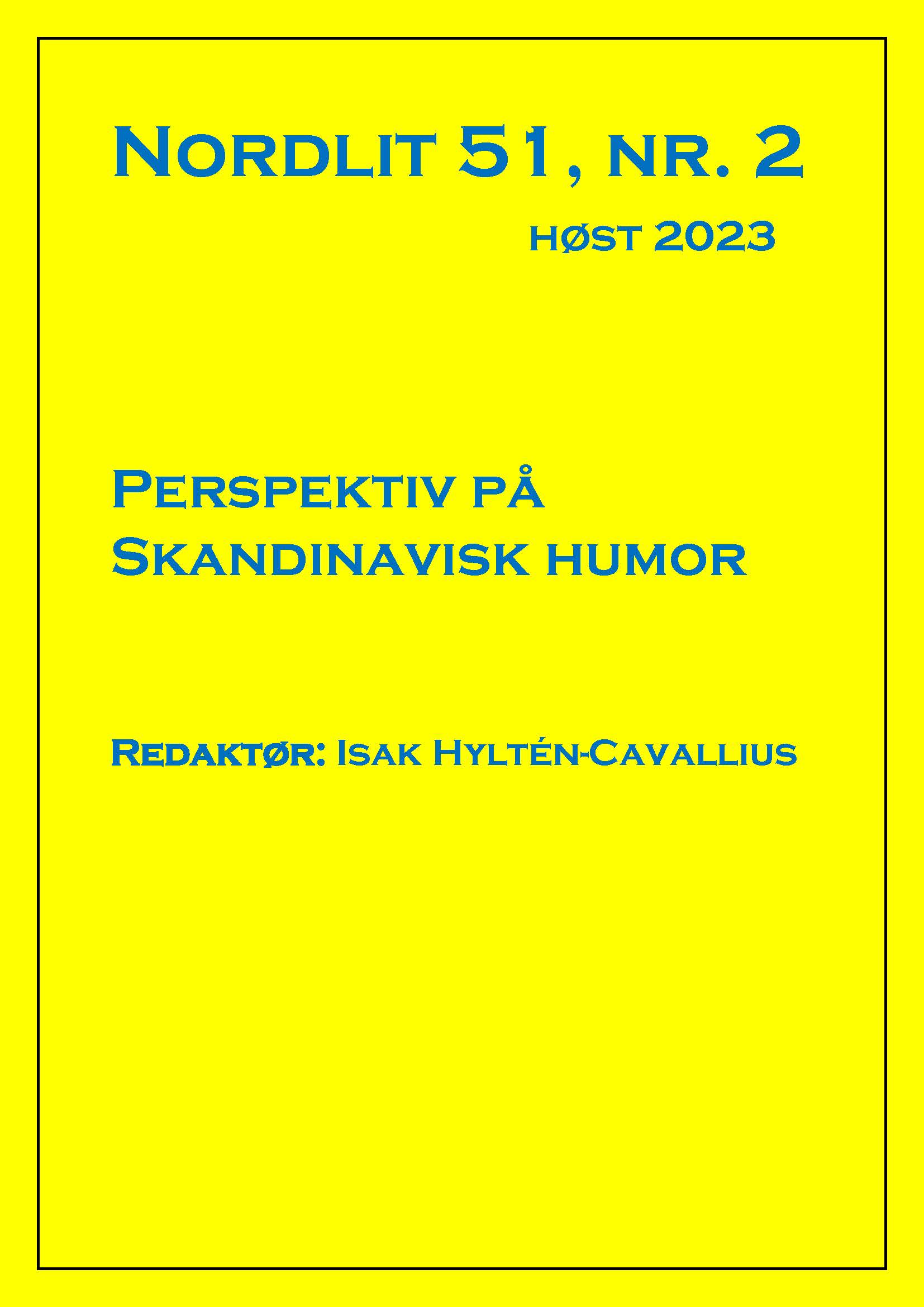Vol. 51 No. 2 (2023): Perspectives on Scandinavian Humour

The second issue of Nordlit 2023 compiles nine articles on the theme Perspectives on Scandinavian Humour. The articles are all developed from papers held att the conference Nordic Humour in the World, arranged by Centre for Scandinavian Studies at Lund University in 2022. Lita Lundquists article examines similarities and differences between the humour of Scandinavian counties using examples from Lars von Trier’s TV-series Riget Exodus (2022). In Lars Burman’s article we are introduced to a literary material from 18th century Sweden, that was popular in its time but that is today largely forgotten. More to the point, the article concerns Johan Risell’s poetry and, specifically, his satire on the Swedish town Åmål. The article is part of a more extensive ambition to reintroduce Risell’s works in the literary history of Sweden. This article is followed by Hadle Oftedal Andersen’s, in which we are acquainted with the authors surrounding the Norwegian student journal Profil during the 1960:s and with this groups absurd brand of humour. Subsequently we find an article by Cecilie Takle, examining the development over time in three different works about Buster Oregon Mortensen. The following article is written by Jonas Lindkvist and consists of a study of masculinity and humour in the two TV-series S*M*A*S*H and Pistvakt. Following this article we find Magdalena Żmuda-Trzebiatowska’s analysis and discussion of the satirical features of Unni Drougges novel Slyngstad Events (2002), in relation to a larger discourse on the Swedish “folkhem”. Anna Smedberg Bondesson, in turn, takes as her point of departure two late collections of poetry by Kristina Lugn, and looks for the specificity of Lugns humour in the particular brand of figurative language that she finds there. Ester Jiresh, subsequently, makes the intersection between humour and feminist activism, in works by Bianca Kronlöf and Liv Strömquist, the center of attention for her article. Lastly we find an article by Christian Liliequist on humour concerning some of the most sensitive and taboo subjects one can imagine. Together these articles constitute a voluminous special issue, focused by the immersive interest in humour shared by the authors, that, at the same time, because of the numerous forms, expressions and contexts can take, is indeed vast in its scope.




